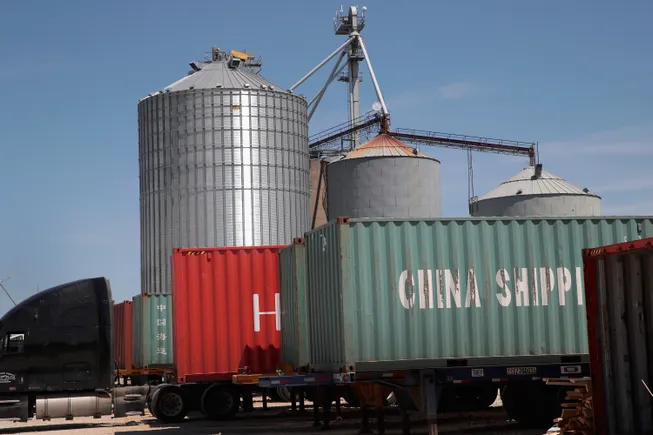Dive Brief:
- The U.S. Department of Agriculture on Tuesday awarded $300 million to create trade opportunities for farm exporters to break into new markets.
- The funding will go to 66 organizations representing a variety of commodities, with recipients looking to carry out projects in non-traditional markets such as Africa, Latin America and the Caribbean.
- The grants are part of the Regional Agricultural Promotion Program, a $1.2 billion program founded last October to build demand for U.S. farm exports in high-potential markets. The program is funded by the Commodity Credit Corporation, a government-owned financing institution which has come under scrutiny in farm bill negotiations.
Dive Insight:
The U.S. agricultural trade deficit is set to hit a record high this year as top global importer China slows purchases and consumers express an increasing appetite for high-value produce that can’t easily be grown domestically.
Farmers have raced to break into non-traditional export markets to offset some of those losses, particularly as tension with China flares and the Biden administration pursues new tariffs on the manufacturing sector. The USDA’s RAPP program facilitates exporters to create new relationships in underserved markets where consumer purchasing power is growing.
“By enabling U.S. exporters to expand their footprint in diverse and dynamic new markets, RAPP will help make them more competitive and resilient in an increasingly volatile global trading environment,” Agriculture Secretary Tom Vilsack said in a statement.
This round of grant funding will help organizations carry out hundreds of projects in a variety of markets. The U.S. Meat Export Federation received $21 million to expand export opportunities in Southeast Asia and throughout Africa, for example, while the Cranberry Institute nabbed $1 million to capitalize on growing markets in India, Brazil, Colombia and Southeast Asia.
The U.S. Soybean Association received the largest grant — $28 million to increase exporters’ presence in Central Asia and throughout sub-Saharan Africa.
Funding for RAPP comes from the Commodity Credit Corporation, which serves as a funding mechanism for farm safety net programs. The CCC has recently come under fire from Republicans, who say the financing institution grants the Agriculture Secretary broad discretionary spending power to fund political pet projects.
The Trump administration has previously used the CCC to dole out trade relief at the height of the U.S. trade war with China. More recently, the Biden administration has used the CCC to create the RAPP program and fund activities around climate-smart agriculture.
House Republicans are proposing in their draft farm bill to rescind the Agriculture Secretary’s discretionary spending power, using the savings to fund increases to farm safety net programs.



